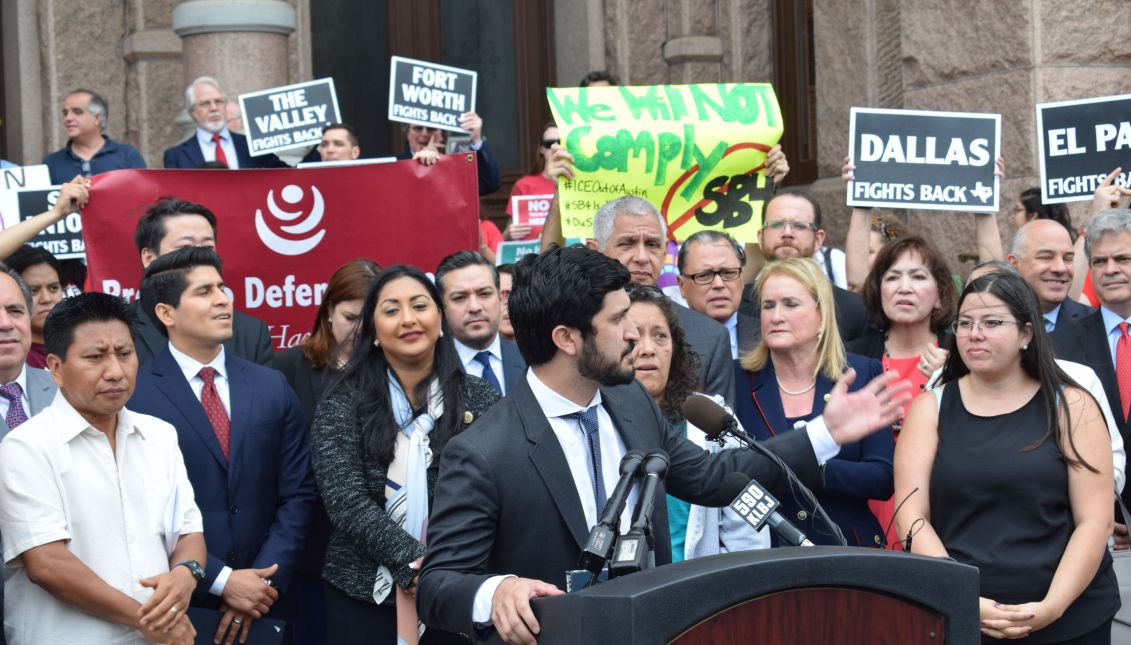
Big Texas cities to sue state over recent law prohibiting sanctuary cities
Several large Texas cities will take legal action against the state over the law recently ratified by Gov. Greg Abbott prohibiting "sanctuary cities" and allowing local authorities to question the immigration status of anyone they detain.
The announcement was made Tuesday at a press conference before the state capitol by lawmakers representing the cities of Austin, El Paso and Dallas, while representatives for Houston and San Antonio said that they are also studying several possibilities along those lines.
The controversial bill - which will go into effect on Sept. 1 - was passed earlier this month and signed by Abbott on May 7.
The new law allows law enforcement officers to ask legally detained or arrested people for their the immigration status and punishes officials who refuse to cooperate with federal immigration agencies, including Immigration and Customs Enforcement.
The governor and his Republican backers claim the law is needed to keep people already in the US illegally from committing crimes, but its opponents say it will allow racial profiling.
El Paso County councilman David Stout said that El Paso will launch legal action next week after on Monday the local commission approved filing a lawsuit against the controversial law claiming it is unconstitutional.
The law, which is very similar to one approved in Arizona in 2010 and known as the "show me your papers" law, allows police to question the immigration status of someone they detain on suspicion of a traffic infraction, for instance.
CONTENIDO RELACIONADO
Meanwhile, Philip Kingston, with the Dallas City Hall, called the law "immoral" and announced that the Dallas city council next week will discuss how to handle the situation in the courts to eliminate it.
Houston Councilman Robert Gallegos, meanwhile, said that the law is "discriminatory and racist," will make communities "less safe" and will only harm the relationship between the local police and local immigrants.
Several state representatives also expressed their unease with the new law during the press conference, including Sylvia Garcia, a senator representing Houston and head of the Hispanic Caucus in the Texas Senate.
Rafael Anchia, a lawmaker from Dallas and head of the Mexican American Legislative Caucus, said that Abbott continues to "criminalize" the Latino immigrant community for political gain instead of concerning himself with real elements of Texas security.
In the coming weeks, numerous municipalities around the state are set to begin a "summer of resistance" and approve resolutions expressing their intention to back litigation to block SB 4 and reaffirm their commitment to policies respecting the links between the police and the communities they serve.
Texas finds itself in the center of the national debate on how to deal with illegal immigrants after Abbott's signing of the law, which was one of his legislative priorities.










DEJE UN COMENTARIO: